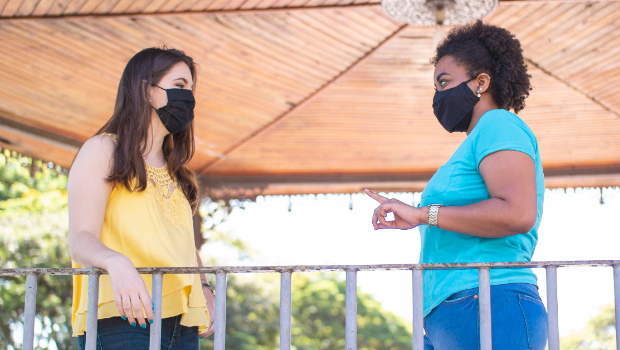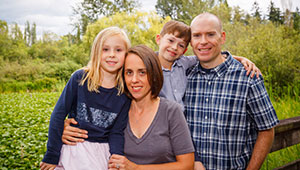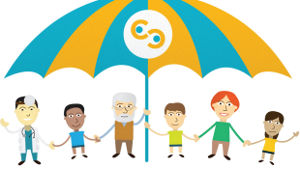Vaccine hesitancy in the time of COVID-19

Now is a good time to share trusted, accurate information about vaccination with others.
Can lessons from Immunity Community help build acceptance of COVID-19 vaccines? Clarissa Hsu, PhD, thinks so
By Clarissa Hsu, PhD, an assistant investigator and medical anthropologist at Kaiser Permanente Washington Health Research Institute
Everyday life has been disrupted by the COVID-19 pandemic. Many people, both experts and lay people, believe that getting approved vaccines against the SARS-CoV-2 virus that causes COVID-19 will be key to getting our lives back to normal. The hope is that vaccines for SARS-CoV-2 will enable us to see friends, teachers, and colleagues in person again at school, work, and other activities without fear of contracting COVID-19.
However, many people may be hesitant to use newly developed vaccines. In recent surveys, acceptance of a COVID-19 vaccine varies but can be especially low in some groups, including Black and African American populations, a group that is also particularly vulnerable to the harmful impacts of COVID-19. Vaccines fears are not new, but they may become front and center in our lives in a way we have not seen in the past. Finding ways to engage communities in open, honest, informed discussions about a COVID-19 vaccine may be critical to ensuring all are protected from this devastating virus as we move forward.
Thoughts from a recent workshop
In August, the National Academies of Sciences, Engineering and Medicine held an online workshop on vaccines. The workshop was not specifically about COVID-19 vaccines but about access and acceptance of vaccines in general. The goal was to share ideas and research that might be used to improve the uptake of all vaccines in the future. Topics covered included making access to vaccines more equitable to improve health globally and measuring and increasing public confidence in vaccines. Attendees included representatives from a wide variety of organizations, including universities, nonprofit organizations, and health departments around the world.
Our KPWHRI team presented findings from our evaluation of a 3-year pilot of the Immunity Community program, which was developed by the public-private partnership Vax Northwest and run by WithinReach, a Washington state nonprofit organization that works to create healthy, equitable communities where all families have the opportunity to thrive. Started in 2011, the Immunity Community program activated parents to have positive, nonconfrontational conversations about immunization with other parents, for example at childcare centers and schools and on social media.
We found that Immunity Community activities improved perceptions about vaccines. Compared to before the pilot program, the percent of parents who reported being vaccine hesitant (both “very” and “somewhat”) fell from 23% to 14%. We also found more parents expressing concern about other people not vaccinating their children and more confidence that vaccinating their kids is a good decision.
Hesitancy and COVID-19 vaccines
Our project to help parents advocate in their communities for vaccination was just one idea for helping people understand and be confident about approved vaccines. Other themes from the Immunity Community project and the workshop I attended that could guide discussions about offering a new COVID-19 vaccine include:
- Using social media and networking to offer information from trusted sources such as doctors and other medical professionals.
- Tailoring engagement about vaccines to specific communities where vaccine hesitancy is high because of cultural, religious, or other factors.
- Working to rebuild public trust in science in general to protect people against false information about vaccines.
For all of us, whether we work in health care or want to support health care workers and a healthy community, now is a good time to think about questions people might ask us about new COVID-19 vaccines and what trusted, accurate resources we might share with others. In addition to direct conversations, many discussions about vaccines occur on social media. Below are resources with more information about increasing vaccine acceptance and addressing misinformation.
vaccines

Mom shares experience in Immunity Community
Jessica Booth tells what it’s like to serve as a parent advocate for childhood vaccination.
immunization

Kaiser Permanente study tests new way to reduce ‘vaccine hesitancy’
Parent volunteers who value immunization show promise as advocates to help protect communities against contagious diseases.
news

Vaccines: Benefits outweigh the risks
Here are some facts from Kaiser Permanente Washington Health Research Institute to help you make the right health decision for your child.


